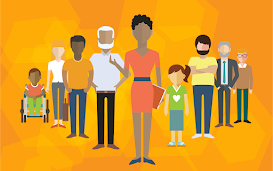Professional career coach Karen Catlin and author of Better Allies: Everyday Actions to Create Inclusive, Engaging Workplaces is an excellent reminder for event planners to be intentional and inclusive. She points out that there is even terminology out there. Did you know that “manel” is a term coined to describe a panel consisting only of men? It wasn’t too long ago that there were “manferences” featuring all-male speaker lineups. Another huge and ever-growing problem is the all-white panel, or “wanel.” Across industries, these exclusionary events have become ubiquitous for years.
Even more problematic is when these speakers don’t have directly lived experiences with the topic. Consider panels about challenges faced by POC or women featuring only men. Or discussions on transgender rights where all the panelists are cisgender people.
Most organizers reach out to their network to find people who can speak on the topic. If they lack diversity in their network, the likelihood is that they’re going to lack diversity at the event. Thus, ensuring that speakers represent a variety of viewpoints and life experiences should be a goal for all organizers. We should be willing to move outside our comfort zones. Some concrete suggestions for all who organize public events by Catlin:
- Inclusive speaker lineups - Be intentional in your selection. If you’re organizing an event, ask every male you’re inviting to speak to recommend a woman, a person of colour, or a member of another underrepresented group to also speak.
- Code of Conduct – Creating and enforcing a code of conduct. Having a diversity statement (such as this one from Word Vancouver Festival) clearly concretizes and makes clear the values of the organization.
- Inclusive Content - Ensure supportive measures so that presentations showcase diversity in slide decks. For example, the simple act of using stock photos and illustrations of people from underrepresented groups makes all the difference. Just as we make sure that the presentation works smoothly on technology, the same care should be made to the presentation itself.


No comments:
Post a Comment